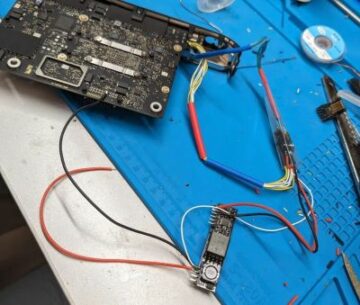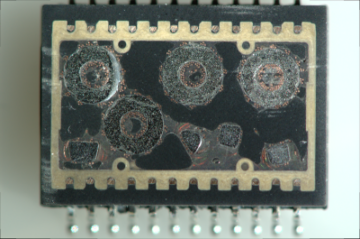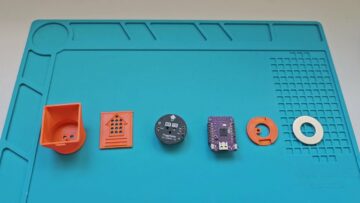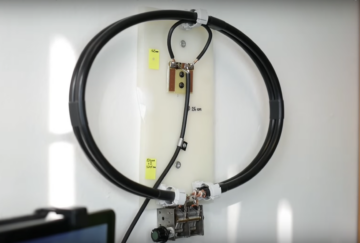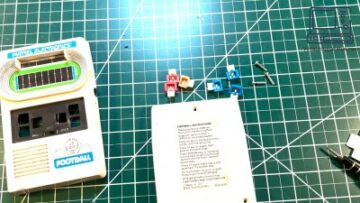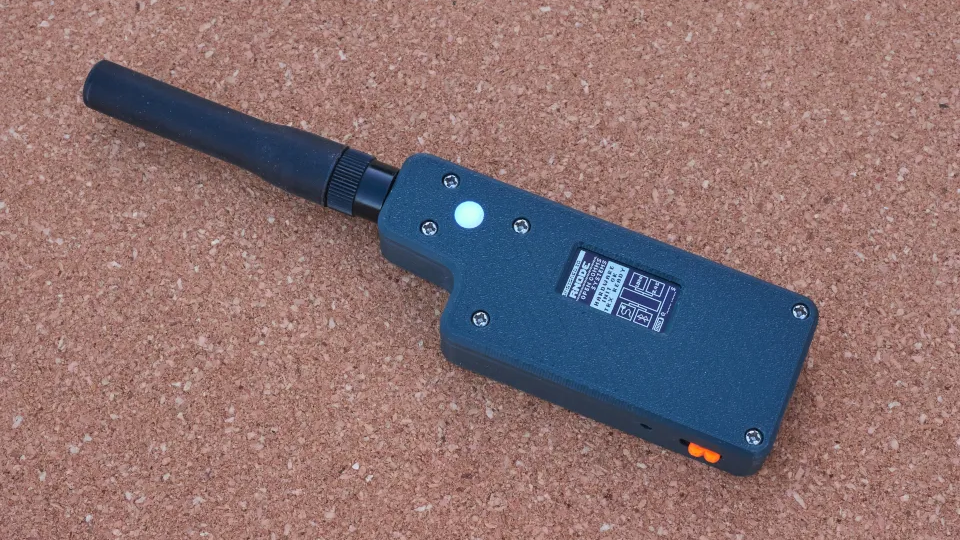
RNode is an open source, unrestricted digital radio transceiver based on — but not limited to — the Reticulum cryptographic networking stack. It is another interesting project in what we might call the “Federated application” space in that it is intended to be used with no central controlling body. It can be used in a LAN or WAN context with the Reticulum network when operating in network adaptor mode, but it also has other use cases.
Essentially, RNode is a software project running on a LilyGO LoRa32 board wrapped up in a snazzy-looking 3D-printed case. Just make sure to grab a version of the board with an u.FL connector in place or somewhere to solder one. If it comes with an SMA connector, you will want to remove that. The device can be standalone, perhaps attached to a mobile device via Wi-Fi, but it needs to be hooked up to a laptop for the really interesting applications. When set to TNC mode, it can act as an APRS gateway, which allows you to access packet radio BBSs and all that fun stuff.
Other supported applications are Sideband and the Nomad Network, both LXMF clients for messaging over secure peer-to-peer networks. Finally, the LilyGo board is a LoRa device that can act as a general-purpose LoRa sniffer, useful for finding communication dead spots. One fun idea is the “bootstrap console,” accessible via any Wi-Fi-enabled RNode and contains the basic information needed to construct other RNode devices. This is hosted on the device, so no internet access is required. But you need access to the spare parts, tools, and something with a screen to read it on. Still, it’s an interesting concept enabled by modern embedded devices having plenty of storage on tap.
The idea of using LoRa for communications at the human level is not a new one. We covered this nice blackberry-esque build not long ago. If you want to know how far you can go with LoRa, check this out.
Thanks [Adam] for the tip!
- SEO Powered Content & PR Distribution. Get Amplified Today.
- PlatoData.Network Vertical Generative Ai. Empower Yourself. Access Here.
- PlatoAiStream. Web3 Intelligence. Knowledge Amplified. Access Here.
- PlatoESG. Carbon, CleanTech, Energy, Environment, Solar, Waste Management. Access Here.
- PlatoHealth. Biotech and Clinical Trials Intelligence. Access Here.
- Source: https://hackaday.com/2024/03/18/rnode-a-portable-unrestricted-digital-radio/
- :has
- :is
- :not
- $UP
- a
- access
- accessible
- Act
- Adam
- All
- allows
- also
- an
- and
- Another
- any
- applications
- ARE
- AS
- At
- attached
- based
- basic
- BE
- board
- body
- both
- build
- but
- by
- call
- CAN
- cases
- central
- clients
- comes
- Communication
- Communications
- concept
- Console
- construct
- contains
- context
- controlling
- covered
- cryptographic
- dead
- device
- Devices
- digital
- embedded
- enabled
- far
- Finally
- finding
- For
- fun
- gateway
- general-purpose
- Go
- grab
- having
- hosted
- How
- HTML
- HTTPS
- human
- idea
- if
- in
- information
- intended
- interesting
- Internet
- internet access
- IT
- just
- Know
- laptop
- Level
- Limited
- Long
- make
- messaging
- might
- Mobile
- mobile device
- Mode
- Modern
- Need
- needed
- needs
- network
- networking
- networks
- New
- no
- NOMAD
- of
- on
- ONE
- open
- open source
- operating
- or
- Other
- over
- parts
- peer to peer
- perhaps
- Place
- plato
- Plato Data Intelligence
- PlatoData
- Plenty
- portable
- project
- Radio
- Read
- really
- remove
- required
- running
- Screen
- secure
- SMA
- So
- Software
- something
- somewhere
- Source
- Space
- spots
- standalone
- Still
- storage
- stuff
- Supported
- sure
- Tap
- that
- The
- this
- to
- tools
- unrestricted
- use
- used
- useful
- using
- version
- via
- want
- we
- What
- when
- which
- Wi-fi
- will
- with
- Wrapped
- you
- zephyrnet


